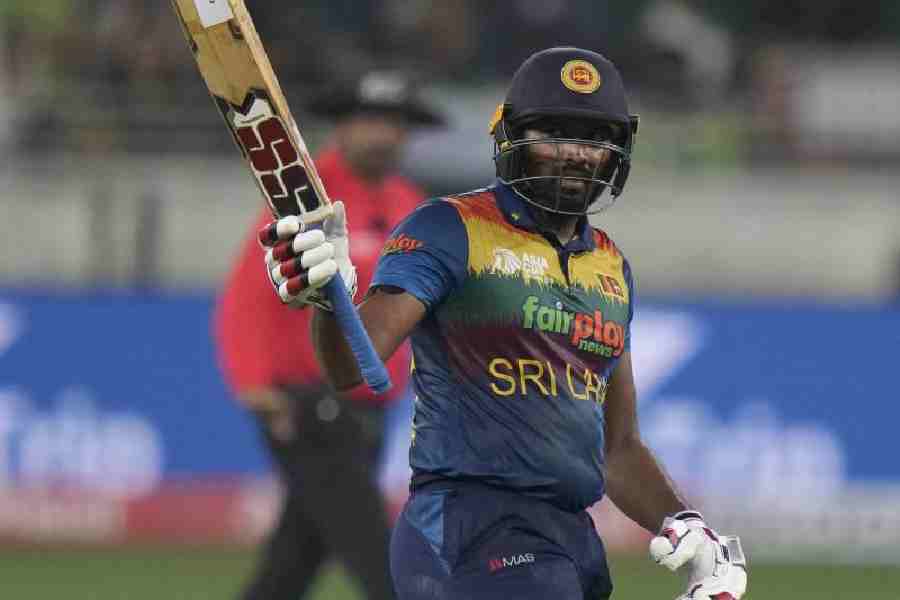New Delhi, Jan. 17: In a twist of irony, the proliferation of mobile phones and the high density of cellphone towers have hobbled India's first research effort to systematically track the health of mobile phone users, scientists have said.
The project launched by the Indian Council of Medical Research five years ago to study the health effects, if any, of mobile phone radiation has so far recruited only about 2,500 volunteers instead of the target sample of 4,500 people.
Scientists say the proliferation of mobile phones and the high density of cellphone transmission towers across the capital are among factors that have hampered the search for volunteers - and forced the ICMR to even change the study's design.
"Finding people who fit the criteria for the study has been a major problem," Radhey Shyam Sharma, ICMR deputy director-general and study coordinator, told The Telegraph.
Collaborating with scientists at the All India Institute of Medical Sciences and the Jawaharlal Nehru University in New Delhi, Sharma hopes to periodically examine the blood biochemistry, ears, brain and cardiovascular and reproductive health of volunteers - men and women - for at least five years.
To do this, the researchers need to segregate the volunteers into several groups, depending on the time they spend on mobile phones each day. Ideally, volunteers who have never used a mobile phone should make up the control group.
"We could not find anybody who'd never used a mobile phone and fit our criteria for inclusion," Sharma said. The Telecom Regulatory Authority of India had estimated in its mid-2015 report that India had over 980 million mobile phone subscribers.
After a search for six months, an expert panel advising the ICMR suggested that the study design be changed to accept people who use mobile phones for less than 30 minutes a day as controls.
The ICMR initiated the study in 2011 around the time when the World Health Organisation's International Agency for Research in Cancer (IARC) had, after analysing hundreds of research studies, labelled mobile phone radiation as "possibly carcinogenic."
The tag from the IARC implies that there is "limited evidence of carcinogenicity in humans and less than sufficient evidence of carcinogenicity in experimental animals" from mobile phone radiation.
IARC experts had cited one study that indicated that the heaviest 10 per cent of mobile phone users - who had a history of at least 30 minutes' phone use each day for 10 years - appeared to have a 40 per cent higher risk of gliomas, a type of malignant brain tumours.
The ICMR study plans to segregate volunteers into four groups - people with less than 30 minutes mobile phone use a day, less than an hour a day, less than four hours a day and four hours or longer a day. The strict exclusion criteria have also made finding volunteers difficult.
"We're looking for people between 25 and 40 years, in near-perfect health," said Sharma. "We can't take people who are too close to cell phone transmission towers, whether near their homes or offices, and we can't have people with Wi-Fi around them."
Study staff members have screened over 10,000 persons but rejected nearly three-fourths.
"Some who were not exposed to mobile phone towers or Wi-Fi had to be turned away for health issues such as diabetes, high blood pressure, low sperm count, or irregular menstrual periods," said a scientist associated with the study.
Senior ICMR scientists say it could take five years after recruitment of volunteers is complete for the results of the study to emerge. "We want to generate strong scientific evidence based on a population of Indian mobile phone users," said ICMR director general Soumya Swaminathan.
The ICMR study has generated interest among scientists outside the country.
"To my knowledge, this is the first large study to explore health-related effects of cell phone radiation by analysing biochemistry of the human body," Dariusz Leszczynski, adjunct professor of biochemistry at the University of Helsinki, Finland, told The Telegraph through email.
"More of such studies, like the one ICMR is doing, are needed," said Leszczynski, who specialises in health and radiation and is familiar with the Indian study's design.
Sharma said a large, long-term observational study was considered necessary after a few laboratory studies by Indian scientists suggested biological effects associated with mobile phone radiation.
Scientists at the Jawaharlal Nehru University five years ago had indicated through a study on laboratory rats that mobile phone radiation may be associated with decrease sperm count, according to a document prepared by the ICMR on previous research on the topic.
Researchers at the Postgraduate Institute of Medical Education and Research, Chandigarh, have suggested that long-term and intensive mobile phone use may cause inner ear damage.










